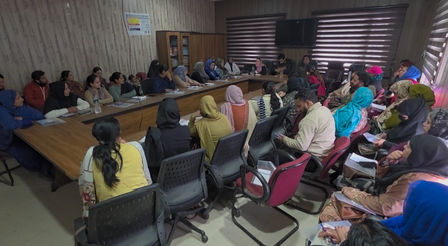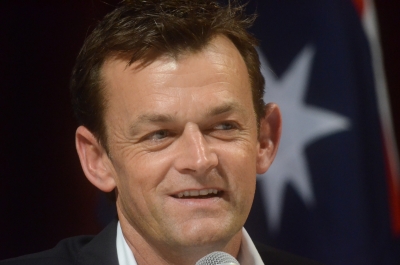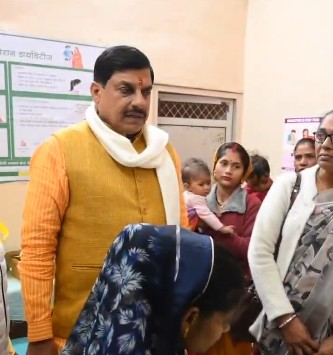
New Delhi, June 26 (IANS) The Indian Council of Medical Research (ICMR)-supported National Centre for Assistive Health Technologies (NCAHT) on Tuesday launched various assistive technology products for visually challenged people at the Indian Institute of Technology (IIT), Delhi.
The assistive technology innovations included — Shapescapes (a geometry learning kit), high-quality White Canes, and an Accessible Kit for STEM Education.
‘Shapescape’ is a geometry learning kit to overcome challenges faced by visually challenged students in teaching/learning concepts of geometry.
NCAHT has created a kit that allows students to use it in a DIY (do it yourself) manner. This low-cost assistive aid is designed with principles of universal design in mind and can be used by sighted, low-vision, and visually challenged students.
The ‘white cane’ is a fundamental assistive technology used by visually challenged people for independent and safe mobility. Kenstel Communications, in collaboration with IIT Delhi, has developed a high-quality white cane, which has been an unmet need for a long time.
Moreover, the ‘accessible kit for STEM education’ has been developed to overcome challenges faced by visually challenged students in learning concepts of electronics such as logic gates, electronic components, circuits, etc.
The kit also includes a self-learning book with concepts explained through tactile diagrams, large print, and Braille. Both of these products will be manufactured by the Raised Lines Foundation, a not-for-profit social enterprise from IIT Delhi.
The NCAHT also announced that large-scale user trials of SmartCane Version 2 and Refreshable Braille Display have begun.
These innovations, co-created with Saksham Trust, Delhi, will empower visually challenged people in their independent mobility and education.
SmartCane is an electronic travel aid and is currently used by about 150,000 people in India and abroad. SmartCane Version 2 is an improved version of the earlier product.
It has been developed with improved usability and user experience and has overcome additional pain points for users and obsolescence.
Moreover, the Assistech Lab at IIT Delhi, in collaboration with Phoenix Medical Systems and Saksham Trust, has developed Tacread, a new refreshable Braille technology, to enable visually challenged users to access digital text from various sources in Braille format.
With this technology, a visually challenged person, for example, can access any book in Braille format from Sugmya Pustakalaya, India’s first and largest collection of accessible books.
–IANS
shs/pgh




